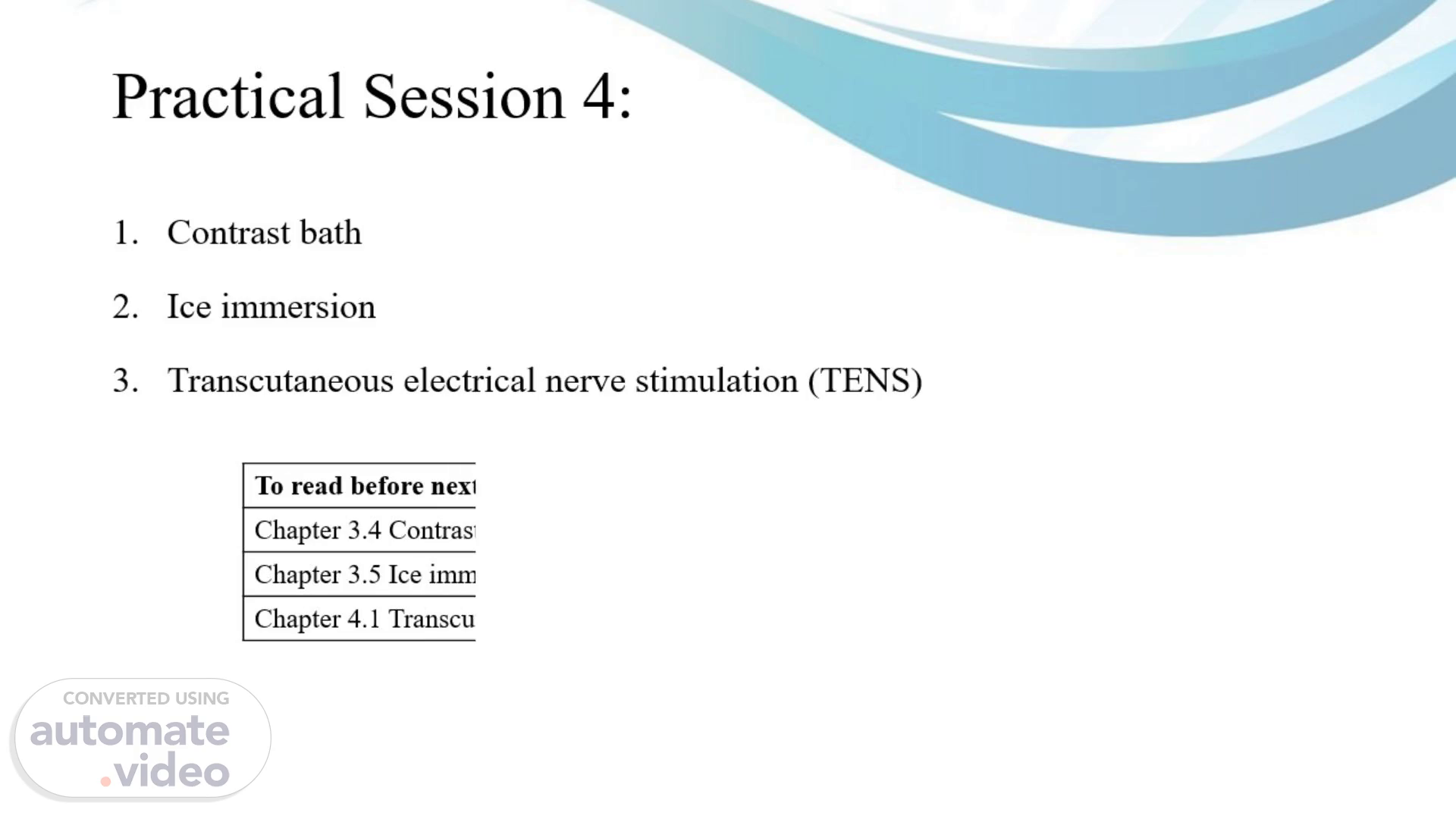Scene 1 (0s)
Practical Session 4:. Contrast bath Ice immersion Transcutaneous electrical nerve stimulation (TENS).
Scene 2 (13s)
Introduction. Assessment. Indication. Goal and Rx effect.
Scene 3 (28s)
Introduction. Assessment. Indication. Goal and Rx effect.
Scene 4 (38s)
Contrast bath / ice immersion application. Call bell / Call help system.
Scene 5 (1m 4s)
TENS Transcutaneous Electrical Nerve Stimulation.
Scene 6 (1m 12s)
Contraindications. Deep vein thrombosis Tuberculosis / infection Cardiac pacemaker / implanted electronic device Impaired sensation / cognition Malignancy /recently radiated tissue Pregnancy Skin disease Current tissue bleeding / open wound Local area such as Eyes, Chest, Heart, Reproductive organs, Anterior neck.
Scene 7 (1m 28s)
Precautions. Active epiphysis Impaired circulation Cardiac insufficiency Skin irritation Allergy to conduction gel.
Scene 8 (1m 36s)
Key concepts in electrotherapy. Theory. Delivery of energy.
Scene 9 (1m 49s)
Physiological and Therapeutic Effect. TENS Electrical energy Peripheral nerve depolarization Sensory nerve Motor nerve Nociceptive nerve Gate system Opiate system Pain relief.
Scene 10 (1m 58s)
Gate control & Opiate system. 18.5. 18.4.
Scene 11 (2m 5s)
Mode of TENS. Characteristic Conventional Acupuncture Burst Brief intense Pulse duration Short (<150us) Long (>150us) Long(>150us) Burst duration Long (>150us) Frequency High (>80Hz) Low (<10Hz) Low (<10Hz) High (>80Hz) Amplitude Comfortable Tolerable Comfortable Tolerable Perception level Sensory Sensory / motor Sensory / motor Sensory / motor Preferential mechanism Gate Opiate Opiate Opiate Acute / chronic pain Acute Chronic Chronic Chronic.
Scene 12 (2m 22s)
Introduction. Assessment. Indication. Goal and Rx effect.
Scene 13 (2m 38s)
Introduction. Assessment. Indication. Goal and Rx effect.
Scene 14 (2m 52s)
TENS application. Treatment duration. Call bell / Call help system.
Scene 15 (3m 8s)
Documentation of treatment.
